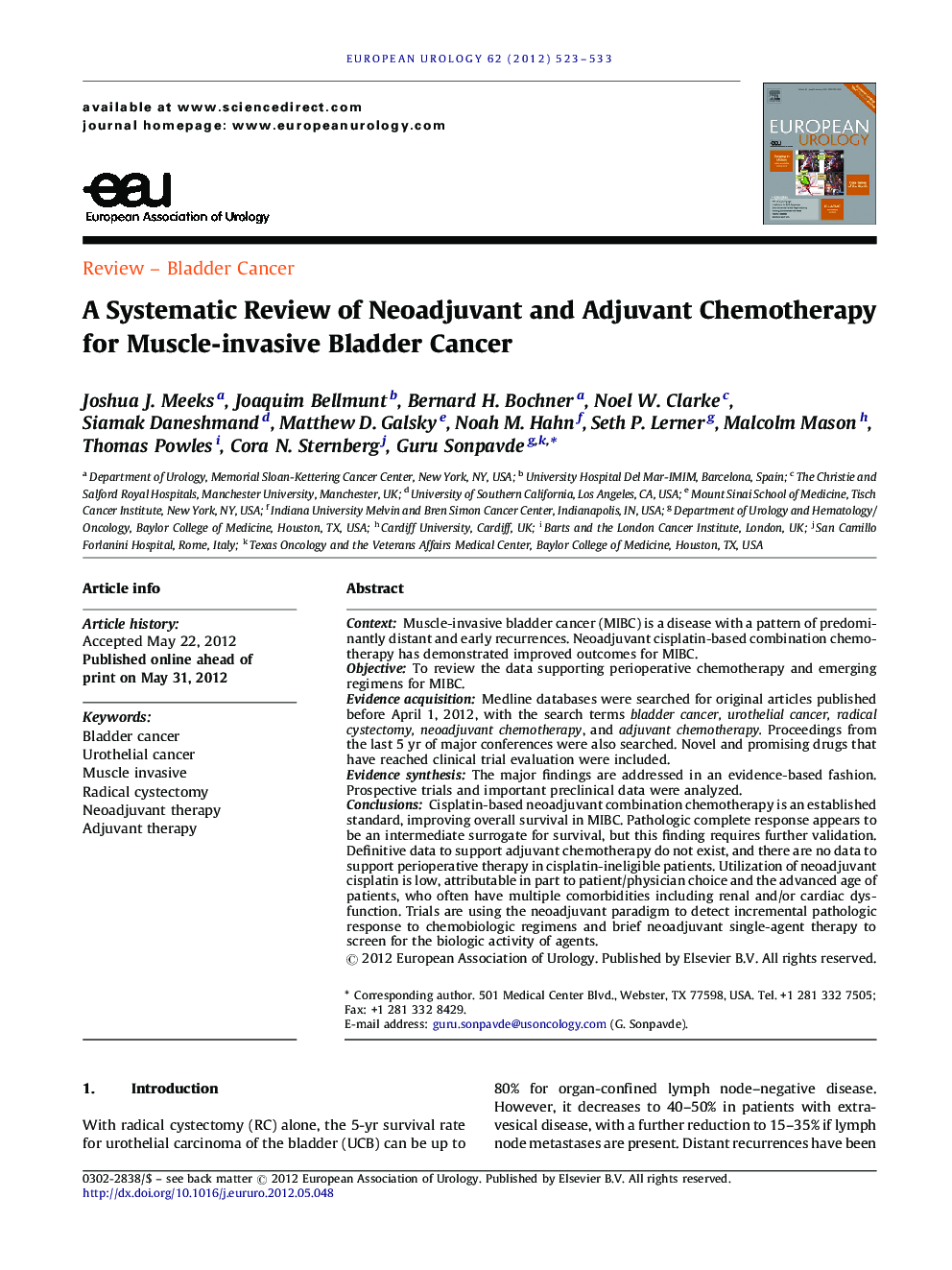| Article ID | Journal | Published Year | Pages | File Type |
|---|---|---|---|---|
| 3922790 | European Urology | 2012 | 11 Pages |
ContextMuscle-invasive bladder cancer (MIBC) is a disease with a pattern of predominantly distant and early recurrences. Neoadjuvant cisplatin-based combination chemotherapy has demonstrated improved outcomes for MIBC.ObjectiveTo review the data supporting perioperative chemotherapy and emerging regimens for MIBC.Evidence acquisitionMedline databases were searched for original articles published before April 1, 2012, with the search terms bladder cancer, urothelial cancer, radical cystectomy, neoadjuvant chemotherapy, and adjuvant chemotherapy. Proceedings from the last 5 yr of major conferences were also searched. Novel and promising drugs that have reached clinical trial evaluation were included.Evidence synthesisThe major findings are addressed in an evidence-based fashion. Prospective trials and important preclinical data were analyzed.ConclusionsCisplatin-based neoadjuvant combination chemotherapy is an established standard, improving overall survival in MIBC. Pathologic complete response appears to be an intermediate surrogate for survival, but this finding requires further validation. Definitive data to support adjuvant chemotherapy do not exist, and there are no data to support perioperative therapy in cisplatin-ineligible patients. Utilization of neoadjuvant cisplatin is low, attributable in part to patient/physician choice and the advanced age of patients, who often have multiple comorbidities including renal and/or cardiac dysfunction. Trials are using the neoadjuvant paradigm to detect incremental pathologic response to chemobiologic regimens and brief neoadjuvant single-agent therapy to screen for the biologic activity of agents.
